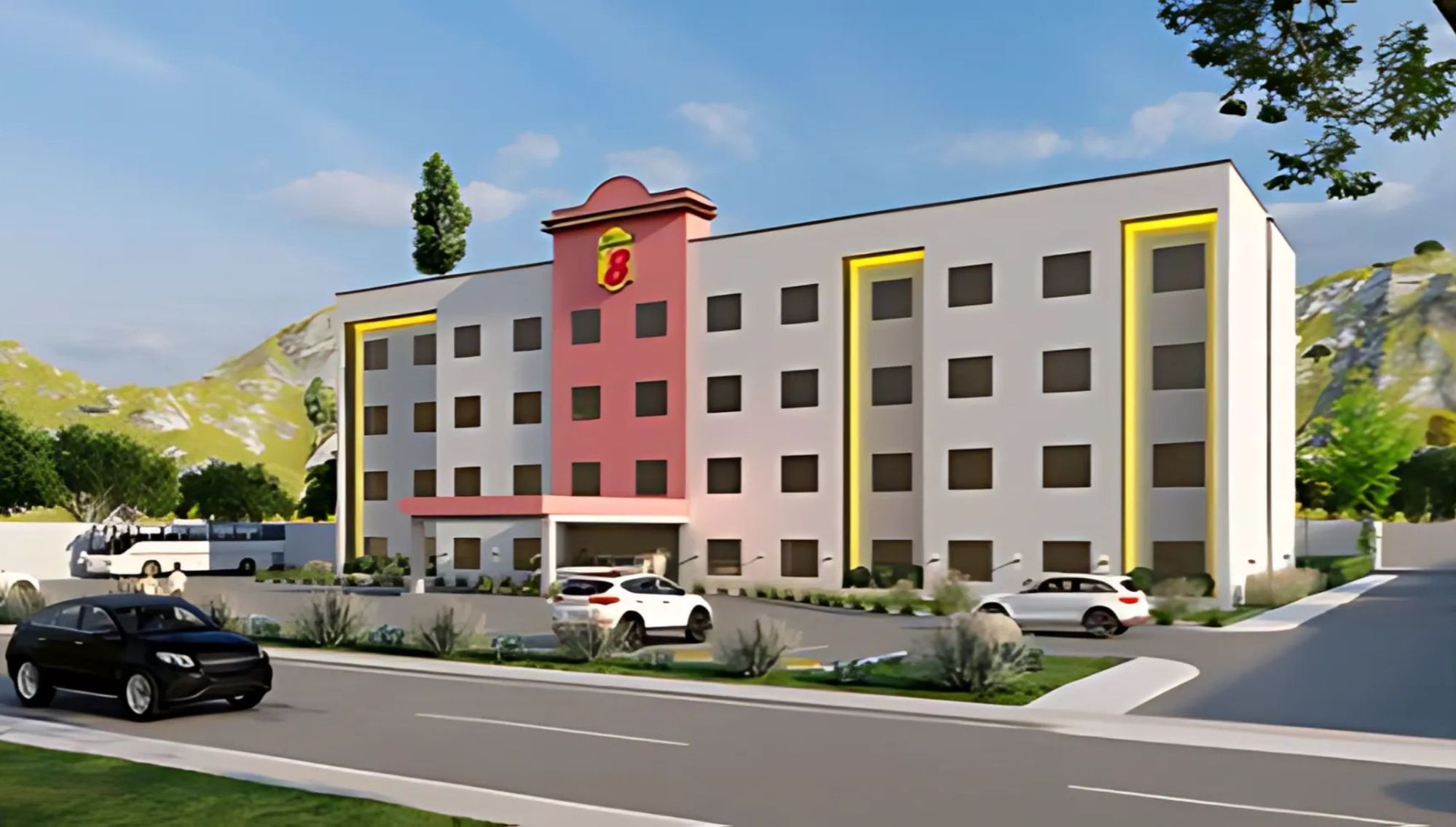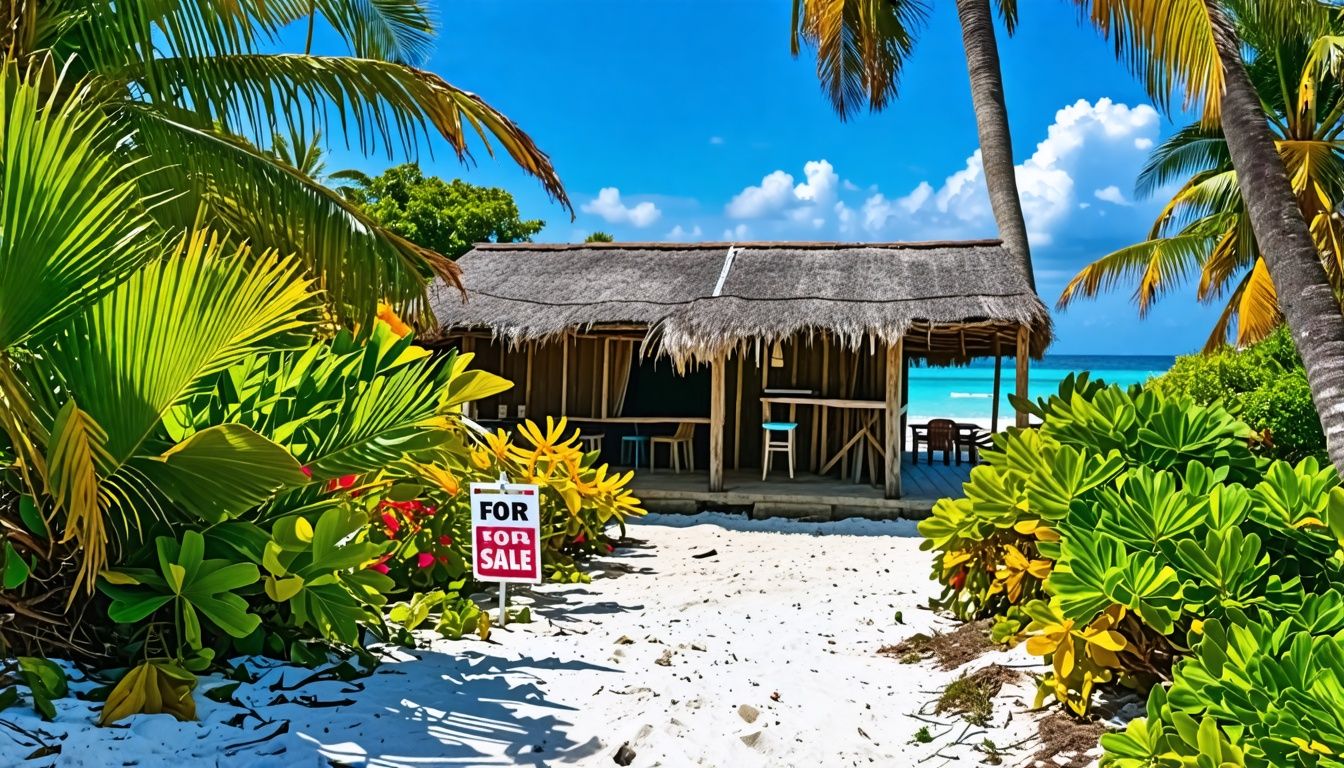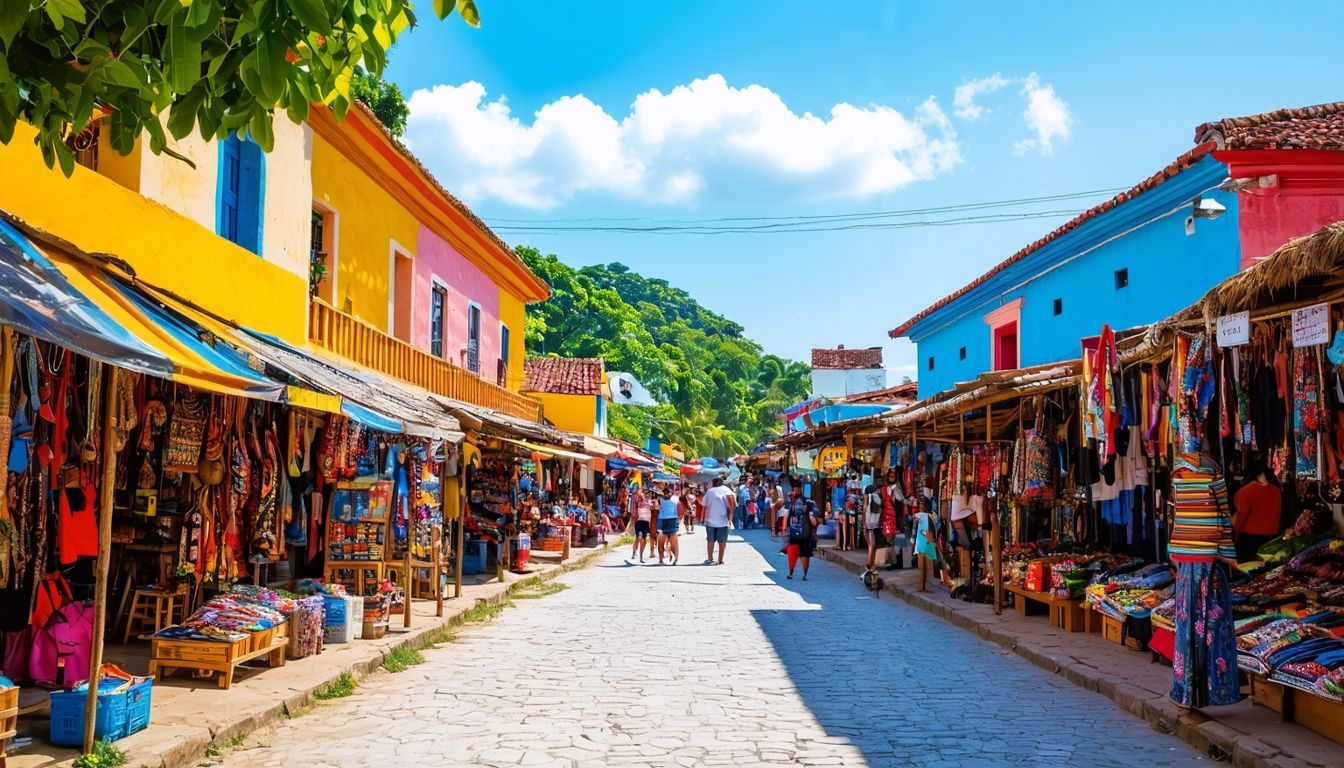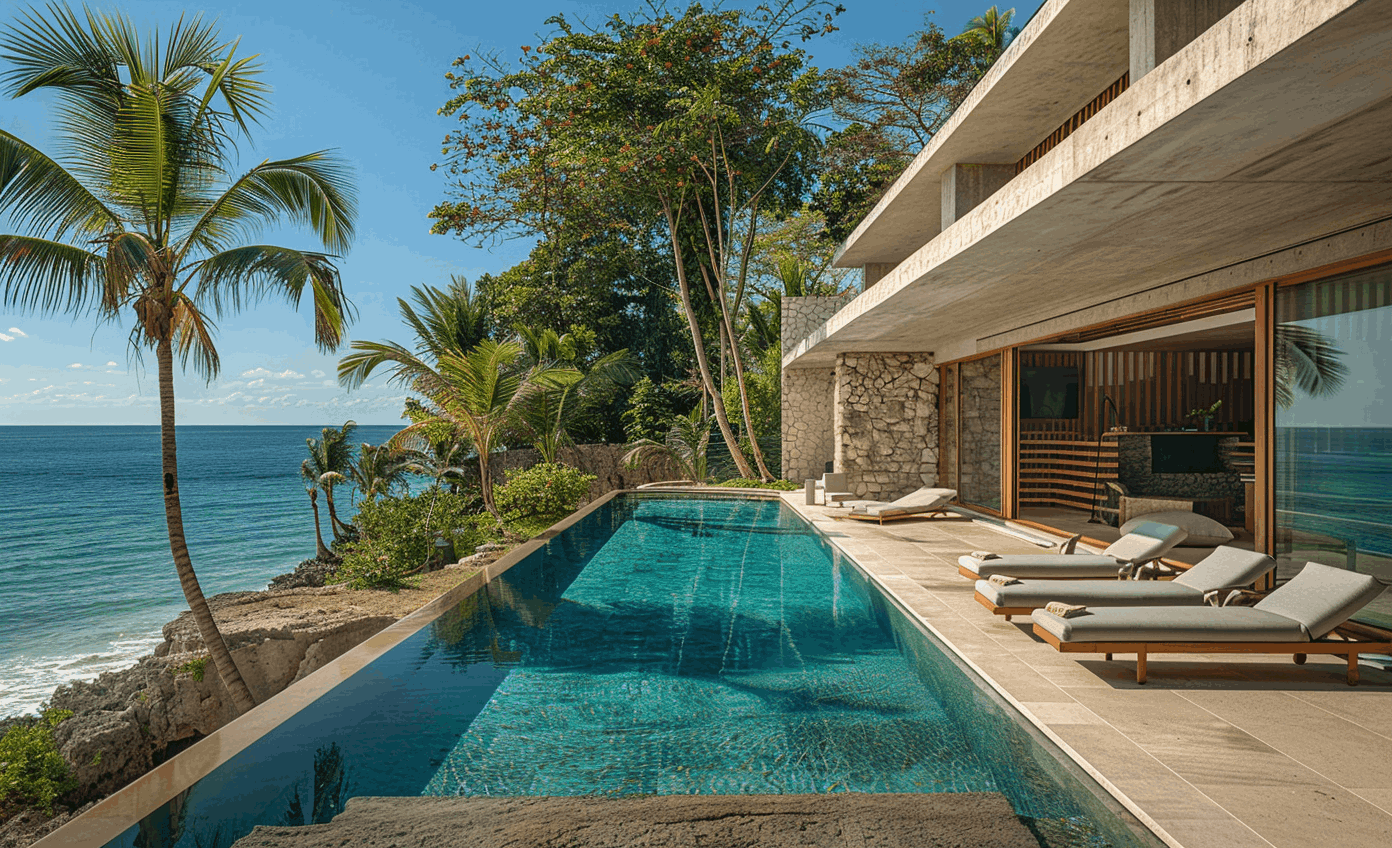The Legal Process of Buying a Villa in Punta Cana: Understanding the Requirements and Regulations

Key Takeaways:
| Section | Key Points |
|---|---|
| Why Punta Cana? | Prime location, real estate trends |
| Legal Framework | Property laws, governmental roles |
| Buying Guide | Steps, documents, due diligence |
| Foreign Buyer Regulations | Requirements, taxes, residency |
| Risks and Pitfalls | Legal issues, zoning regulations |
| Professional Assistance | Advisors, real estate agents, lawyers |
| Case Studies | Success stories, lessons |
Introduction
Punta Cana, a tropical paradise nestled in the Dominican Republic, has emerged as a sought-after destination for real estate investors and luxury home buyers. With its pristine beaches, world-class resorts, and vibrant culture, it's no surprise that many are drawn to the idea of owning a piece of this Caribbean haven. However, navigating the legal landscape of purchasing a villa in Punta Cana can be daunting, especially for foreign buyers. In this comprehensive guide, we'll walk you through the legal process, requirements, and regulations, ensuring that your dream of owning a villa in Punta Cana becomes a reality.
Why Punta Cana?
Before diving into the legal aspects, let's explore what makes Punta Cana an attractive destination for property buyers. Punta Cana boasts an array of enticing features:
-
Breathtaking Beaches: With over 30 miles of white sandy beaches and crystal-clear turquoise waters, Punta Cana offers an idyllic tropical setting that captivates visitors and residents alike.
-
World-Class Resorts and Amenities: The region is home to numerous luxurious resorts, golf courses, spas, and restaurants, providing a wealth of leisure and entertainment options.
-
Growing Tourism Industry: Punta Cana's thriving tourism sector ensures a steady stream of rental income opportunities for villa owners who wish to generate revenue from their properties.
-
Attractive Investment Potential: The real estate market in Punta Cana has demonstrated consistent growth, with property values appreciating over time, making it an appealing investment prospect.
-
Accessible Location: Punta Cana International Airport offers direct flights from major cities worldwide, making it convenient for both owners and rental guests to reach the destination.
Real estate market trends in Punta Cana have shown a consistent upward trajectory, with a growing demand for luxury villas and condominiums. The region's popularity among international buyers has led to the development of new residential communities and resort-style properties, catering to various preferences and budgets.
Understanding the Legal Framework
To successfully navigate the process of buying a villa in Punta Cana, it's crucial to understand the legal framework governing property ownership in the Dominican Republic. The country's laws are generally favorable towards foreign investors, granting them the same rights as Dominican citizens when it comes to property acquisition.
Property Laws and Foreign Ownership
The Dominican Republic's Constitution guarantees the right to private property ownership for both nationals and foreigners. This means that foreign buyers can purchase, sell, and rent properties without restrictions, as long as they comply with the applicable laws and regulations.
The primary legal framework governing property transactions in the Dominican Republic is the Property Registry Law (Ley de Registro Inmobiliario). This law establishes the rules and procedures for registering and transferring property rights, ensuring the security and transparency of real estate transactions.
The Role of Government Institutions
Several government institutions play a vital role in the property purchase process in Punta Cana:
-
Property Registry Office (Registro de Títulos): This office is responsible for maintaining the official records of property ownership and registering all property transactions. It ensures the legality and validity of title deeds and provides a reliable means of verifying property ownership.
-
Notary Public (Notario Público): In the Dominican Republic, notaries are legal professionals appointed by the government to oversee and authenticate legal documents, including property transfer contracts. They play a crucial role in ensuring the legitimacy of property transactions.
-
Tax Authorities: The Dominican Tax Authority (DGII) oversees the collection of property-related taxes, such as the annual property tax (IPI) and the transfer tax paid upon the sale of a property.
It's essential for foreign buyers to work with experienced legal professionals who can guide them through the intricacies of the Dominican legal system and ensure compliance with all relevant laws and regulations.
Step-by-Step Guide to Buying a Villa in Punta Cana
Now that you have a basic understanding of the legal framework, let's delve into the step-by-step process of buying a villa in Punta Cana.
Initial Considerations
Before embarking on your property search, consider the following:
-
Purpose of the Purchase: Determine whether you intend to use the villa as a primary residence, vacation home, or rental investment property. This will influence your choice of location, property type, and budget.
-
Budget and Financing: Establish your budget and explore financing options, such as mortgages or personal loans. Keep in mind additional costs like legal fees, taxes, and maintenance expenses.
-
Visa and Residency Requirements: Research the visa and residency requirements if you plan to spend extended periods in the Dominican Republic. Some property investments may qualify you for residency benefits.
Choosing the Right Location and Property
Punta Cana offers a diverse range of neighborhoods and property types to suit various preferences and budgets. Consider factors such as proximity to the beach, resort amenities, accessibility, and the property's size and style when making your selection.
Essential Legal Documents
To complete a property purchase in Punta Cana, you'll need the following legal documents:
-
Title Deed (Certificado de Título): This document proves ownership of the property and must be registered at the Property Registry Office.
-
Sale and Purchase Contract: This legally binding agreement outlines the terms and conditions of the property sale, including the price, payment method, and any contingencies.
-
Tax Receipts: You'll need to provide proof of payment for the relevant property taxes, such as the transfer tax and annual property tax.
-
Identification Documents: Buyers must present valid identification documents, such as a passport or national ID card.
The Role of a Notary Public
In the Dominican Republic, a notary public plays a vital role in the property buying process. They are responsible for drafting and legalizing the sale and purchase contract, conducting due diligence on the property's legal status, and overseeing the signing of the final contract.
The Purchasing Process
-
Preliminary Contract (Contrato de Promesa de Venta): Once you've found your desired property, you'll sign a preliminary contract with the seller, outlining the key terms of the sale. This contract is typically accompanied by a deposit (usually 10% of the purchase price) to secure the property.
-
Due Diligence: Before finalizing the purchase, conduct thorough due diligence on the property, including a title search to verify ownership and ensure there are no outstanding liens or encumbrances. A professional attorney can assist you in this process.
-
Final Contract (Contrato de Venta Definitiva): Upon satisfactory completion of due diligence, you'll sign the final sale and purchase contract, outlining the remaining payment terms and transfer of ownership.
-
Payment and Transfer of Ownership: On the agreed-upon closing date, you'll make the final payment, and the notary will register the transfer of ownership with the Property Registry Office. You'll receive the title deed in your name, officially becoming the legal owner of the villa.
Regulations and Requirements for Foreign Buyers
Foreign buyers in Punta Cana must comply with certain regulations and requirements:
Legal Requirements
-
Passport or National ID: Buyers must present a valid passport or national ID card to complete the purchase process.
-
Tax Identification Number (NIF): Foreigners must obtain a tax identification number from the Dominican Tax Authority to pay property-related taxes.
Tax Implications
-
Transfer Tax: A transfer tax (3% of the property value) is payable upon the sale of the property.
-
Annual Property Tax (IPI): Property owners are subject to an annual property tax, calculated based on the property's value.
-
Capital Gains Tax: If you sell the property at a profit, you may be liable for capital gains tax on the realized gain.
It's recommended to consult with a tax professional to understand your specific tax obligations and potential exemptions.
Residency Through Property Investment
Foreigners who invest a minimum of $200,000 in a Dominican property may be eligible for a residency permit under the country's investment-based residency program. This program offers a streamlined path to obtaining residency, with benefits such as visa-free travel within the Caribbean region.
Risks and Common Pitfalls to Avoid
While buying a villa in Punta Cana can be an exciting and rewarding experience, it's essential to be aware of potential risks and pitfalls:
Legal Issues
-
Title Disputes: Ensure that the property has a clean and clear title, free from any disputes or encumbrances. Conduct a thorough title search and work with a reputable attorney to mitigate this risk.
-
Zoning and Building Restrictions: Familiarize yourself with the local zoning regulations and building codes to avoid any issues with property use or future renovations.
Compliance with Regulations
- Proper Permits and Licenses: Verify that the property has all the necessary permits and licenses, such as construction permits and occupancy certificates.
Tips for a Smooth Purchase
-
Work with Reputable Professionals: Engage the services of experienced real estate agents, attorneys, and notaries who have a proven track record in Punta Cana's property market.
-
Conduct Thorough Due Diligence: Don't rush the due diligence process. Take the time to thoroughly investigate the property's legal status, physical condition, and potential limitations.
-
Review Contracts Carefully: Carefully review all legal contracts and agreements before signing. Seek the advice of a legal professional to ensure your interests are protected.
Professional Assistance: When and Why to Seek Help
Navigating the legal complexities of buying a villa in Punta Cana can be overwhelming, especially for foreign buyers. That's why it's crucial to seek the assistance of experienced professionals throughout the process:
Real Estate Agents
A knowledgeable real estate agent can help you find properties that match your criteria, negotiate with sellers, and guide you through the purchase process. They can also provide valuable insights into the local market, prices, and investment potential.
Attorneys
Engaging the services of a reputable attorney who specializes in property law is essential to protect your interests and ensure a smooth transaction. An attorney can help you:
- Review and draft legal contracts
- Conduct due diligence on the property
- Advise on legal requirements and regulations
- Resolve any legal issues that may arise
Notaries
As mentioned earlier, a notary plays a critical role in authenticating legal documents and overseeing the property transfer process. They ensure that all legal requirements are met and that the transaction is properly registered with the relevant authorities.
Case Studies: Successful Villa Purchases in Punta Cana
To illustrate the potential for success when buying a villa in Punta Cana, let's look at a couple of case studies:
Case Study 1: The Johnsons' Retirement Dream
John and Mary Johnson, a retired couple from the United States, had always dreamed of owning a tropical retreat. After extensive research, they settled on Punta Cana as their ideal location. Working with a local real estate agent, they found a beautiful villa in a gated community, just minutes from the beach. The agent guided them through the legal process, connecting them with a trusted attorney who conducted due diligence and reviewed the contracts. Within two months, the Johnsons successfully closed on their dream villa and have been enjoying their Caribbean getaway ever since.
Case Study 2: The Wilsons' Investment Property
David and Sarah Wilson, a young professional couple from the UK, saw the potential for a lucrative rental investment in Punta Cana. They collaborated with a real estate agent specializing in investment properties and identified a villa with strong rental demand. The agent referred them to a local attorney who helped them navigate the legal requirements and ensure a secure transaction. The Wilsons successfully purchased the villa and have been enjoying steady rental income, with plans to expand their investment portfolio in the future.
These case studies demonstrate that with the right preparation, professional guidance, and due diligence, buying a villa in Punta Cana can be a fulfilling and profitable venture.
Conclusion
Buying a villa in Punta Cana is an exciting opportunity to own a piece of paradise in the Caribbean. However, it's crucial to understand and navigate the legal process, requirements, and regulations to ensure a successful and secure transaction.
By following this comprehensive guide and seeking the assistance of experienced professionals, you can confidently pursue your dream of owning a villa in Punta Cana. Remember to conduct thorough due diligence, review contracts carefully, and comply with all legal obligations to minimize risks and enjoy a seamless property purchase experience.
With the right preparation and guidance, you'll be well on your way to owning a stunning villa in this tropical haven, whether as a personal retreat or a lucrative investment opportunity. Embrace the journey and get ready to savor the incredible lifestyle that Punta Cana has to offer.
Frequently Asked Questions
-
How long does the villa buying process typically take in Punta Cana? The duration of the buying process can vary depending on the complexity of the transaction and the efficiency of the parties involved. On average, it can take around 2-3 months from the initial property search to the final closing.
-
Can I obtain financing from Dominican banks to purchase a villa? Yes, many Dominican banks offer mortgage financing to foreign buyers, subject to certain eligibility criteria and documentation requirements. It's recommended to explore financing options with local banks or international lenders specializing in Dominican real estate.
-
Are there any restrictions on the use of the villa I purchase? The use of your villa may be subject to zoning regulations and community guidelines, especially if it's located within a gated development or resort. It's essential to review the applicable rules and restrictions before finalizing your purchase.
-
How can I ensure the authenticity and accuracy of the property's title? To verify the authenticity and accuracy of the property's title, conduct a thorough title search through the Property Registry Office and engage the services of a reputable attorney who can assist with the due diligence process.
-
What are the ongoing costs associated with owning a villa in Punta Cana? Owning a villa in Punta Cana entails ongoing costs such as annual property taxes, utilities, insurance, maintenance, and community or resort fees (if applicable). It's crucial to factor in these expenses when budgeting for your property purchase.
-
Can I rent out my villa when I'm not using it? Yes, many villa owners in Punta Cana choose to rent out their properties when they're not in use, taking advantage of the strong tourism demand. However, it's essential to comply with local rental regulations and obtain the necessary permits or licenses.
-
What are the tax implications of selling my villa in the future? If you decide to sell your villa, you'll be subject to capital gains tax on any profit realized from the sale. The tax rate and calculation method may vary depending on your residency status and the duration of ownership. Consult with a tax professional to understand your specific tax obligations.
-
How can I find a reliable real estate agent in Punta Cana? To find a reliable real estate agent, research reputable agencies with a proven track record in the Punta Cana market. Look for agents who are members of professional associations, have positive client reviews, and demonstrate expertise in working with foreign buyers.
-
What due diligence should I conduct before buying a villa? Due diligence is a critical step in the buying process. This includes conducting a title search, reviewing zoning and building regulations, verifying permits and licenses, assessing the property's condition, and investigating any potential legal or environmental issues.
-
How do I transfer funds for the villa purchase? When transferring funds for your villa purchase, it's essential to use secure and legitimate channels. Work with your bank or a reputable foreign exchange provider to ensure the safe and efficient transfer of funds. Your real estate agent or attorney can guide you on the proper documentation and procedures for the funds transfer.
Categories
- All Blogs (61)
- agent (1)
- branded residence (1)
- business (2)
- buy (2)
- buying (23)
- cabarete (1)
- cap cana (6)
- caribbean (2)
- casa de campo (6)
- celebrity (2)
- commercial (1)
- construction (2)
- dominican republic (9)
- evaluation (1)
- event (1)
- financing (1)
- golf (2)
- golf resorts (2)
- Grupo De Vale (1)
- hotel (1)
- insurance (1)
- investing (26)
- las terrenas (1)
- law (3)
- lawyer (1)
- legal (1)
- luxury (1)
- market (1)
- north coast (2)
- properties (7)
- property inspection (1)
- property tax (1)
- puerto plata (1)
- punta cana (3)
- real esate (1)
- real estate (33)
- renting (5)
- resorts (1)
- selling (5)
- selling, (1)
- tax (3)
- usa (1)
- vacation rental (2)
Recent Posts










GET MORE INFORMATION NOW

